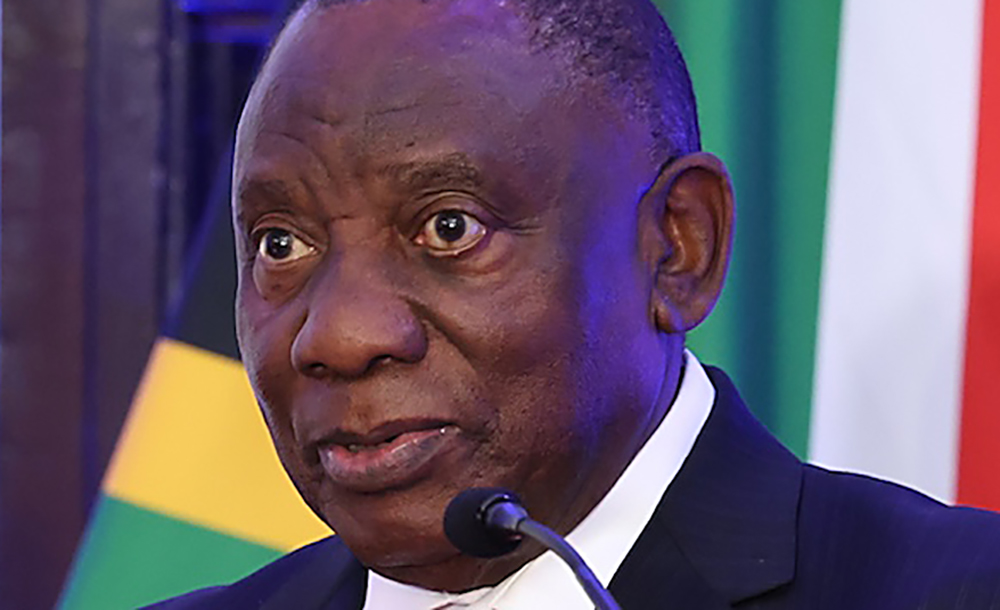President Cyril Ramaphosa assented on 29 October to the Upstream Petroleum Resources Development Bill, which is aimed at providing regulatory clarity for the sector as South Africa scrambles to catch up with neighbouring Namibia and Mozambique in the oil and gas space.
“The Bill provides for the orderly development of petroleum resources and equitable access to and sustainable development of the petroleum resources, and enables active state and black persons’ participation in the development of the nation’s petroleum resources,” said the Presidency in a statement.
The Act provides for the separation of the regulatory frameworks that oversee the mining and upstream petroleum sectors. Both sectors will be regulated by the Ministry of Mineral Resources and Petroleum under Gwede Mantashe.
“The creation of a dedicated legislative and regulatory regime governing upstream oil and gas exploration and production is something which many of our counterparts have taken up long ago; we are simply catching up with the curve,” said Megan Rodgers, the head of oil and gas at the law firm CDH.
South Africa is certainly behind the curve on this front as gas — seen as a “transition fuel” in the global decarbonisation drive — becomes the new gold which neighbours Namibia and Mozambique are cashing in on as investors pile into projects in both countries in the wake of massive offshore finds.
Read more: A $130bn baby – gas is the new gold on Africa’s hydrocarbon front
The new Act also comes against the backdrop of the French energy giant TotalEnergies’decision to pull the plug on the Brulpadda-Luiperd offshore gas projects because it could not find a viable commercial path after failing to reach an agreement with PetroSA and Eskom over pricing.
Read more: TotalEnergies pulled out of Brulpadda-Luiperd gas projects over pricing, parliamentary committee told
Among other things, the Act entitles the State Petroleum Company to a 20% carried interest in exploration and production phases. Holders are to recover a maximum of 50% and 100% of the state’s share of exploration and production costs, respectively.
Every petroleum right must have a BEE participant with at least a 10% stake. Section 32 of the Act allows the minister to reserve blocks for companies that are 100% black-owned.
The Act does recognise the “once empowered, always empowered” principle, which was a flashpoint of contention between the former Department of Mineral Resources and Energy (DMRE) and the mining industry. This means that if a BEE participant sells off its share of a petroleum right, the main player does not have to top up its black ownership for the duration of the right. This is subject to various conditions.
All existing exploration rights will remain in force, but the holder must apply for a conversion to a petroleum right before it expires. Current holders of production rights can maintain them for up to five years after the Act comes into force and must apply to convert them within that timeframe if they wish to retain them.
This process should be straightforward, but the DMRE has stirred controversy in the past with mining rights conversions.
Licensing rounds must be competitive with predefined criteria established by the minister, or open on a “first come, first served” basis with no predefined criteria. Could the latter be open to corruption? Quite possibly.
The bottom line is that there is now at least some of the regulatory clarity that investors need for the upstream sector. How all of this is administered under Mantashe, who has not shown himself to be a particularly capable administrator, remains to be seen. DM
Business Maverick
Ramaphosa signs petroleum Bill as SA lags behind neighbours in hydrocarbon race
The bottom line is that there is now at least some of the regulatory clarity that investors need for the upstream sector. How all of this is administered under Gwede Mantashe, who has not shown himself to be a particularly capable administrator, remains to be seen.





